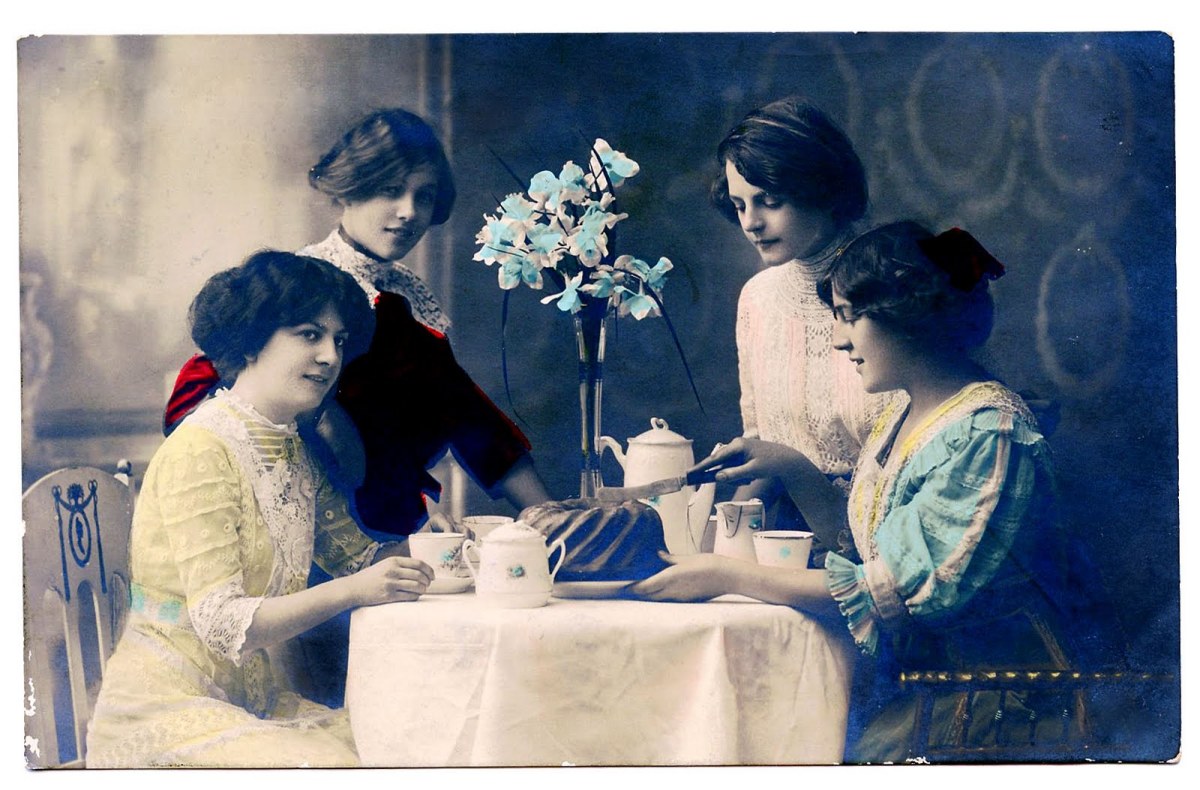AT HOME WITH MY EMOTIONS, Part 2
LOVE
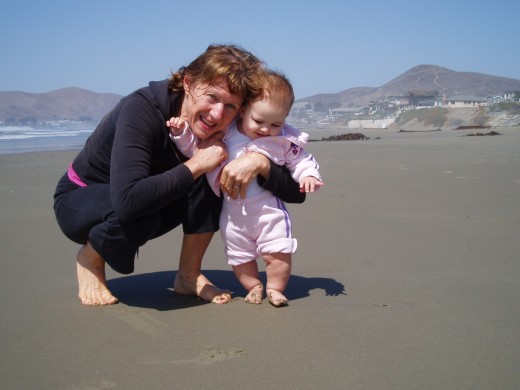
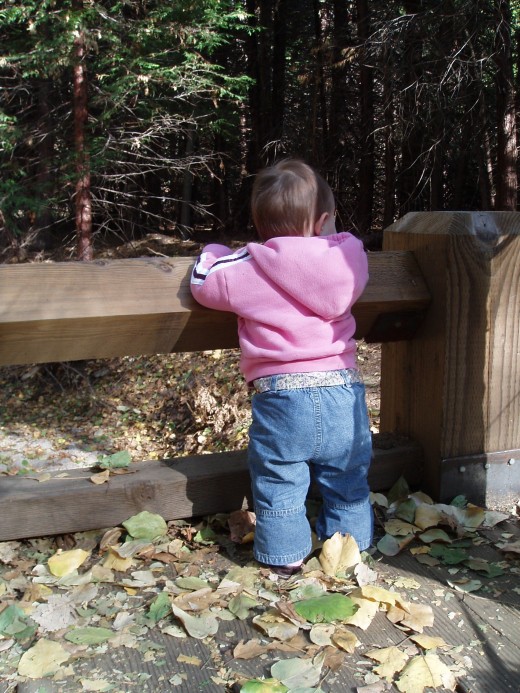

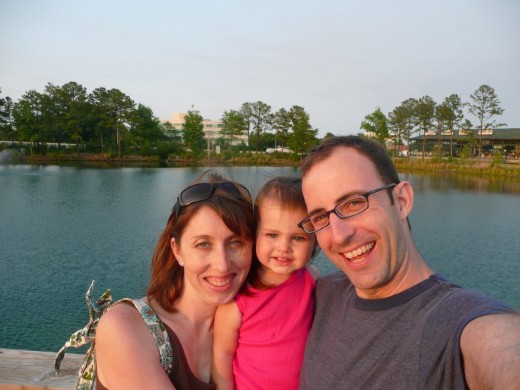
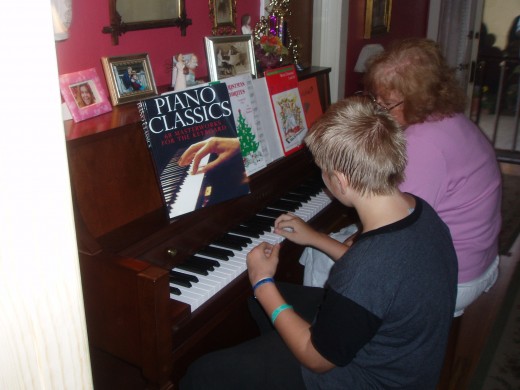

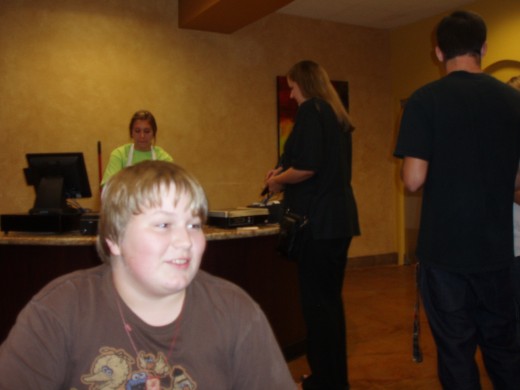
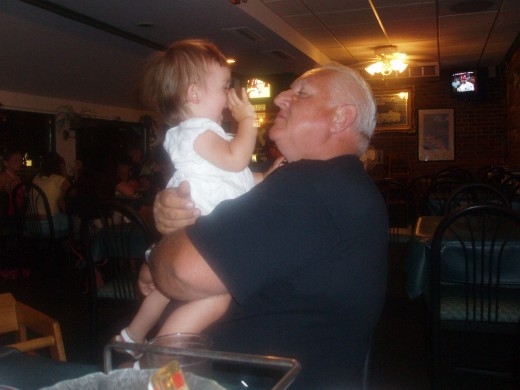

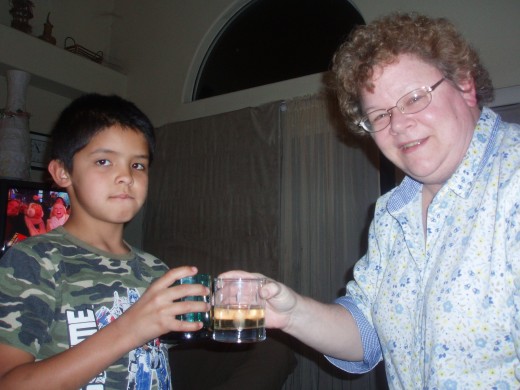
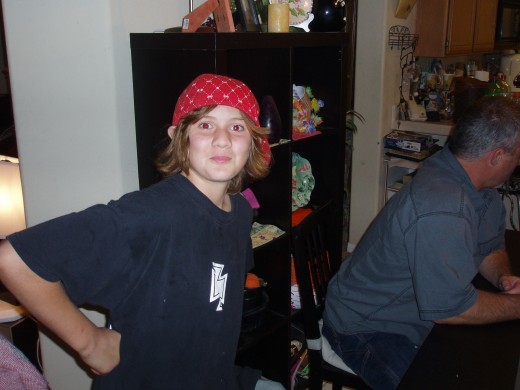
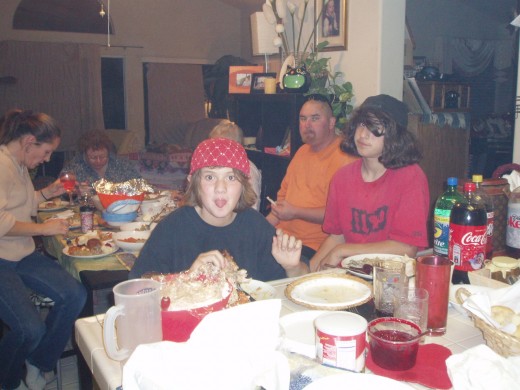
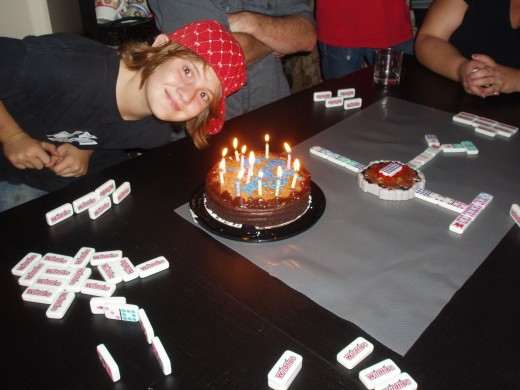
AT HOME WITH LOVE
Beginning September 07 of this year, I’m "teaching" a series of classes for Foster Parents at San Bernardino Valley College entitled, Being At Home With My Emotions
In case you live nearby, the Series is being presented on six consecutive Tuesdays and Fridays, September 07, 2010 to September 24, 2010. Classes begin at 9 a. m. and end at 12 noon. Contact me for registration information.
But for those of you who do not live nearby, I thought I would begin my preparations for the classes by writing a hub on each topic of the Series.
Although, I am writing particularly to foster parents, the information here is pertinent to parents in general.
The next hub I had planned to write would have been entitled, Being At Home With Our Emotions, Part 2: Being at home with anger, envy, and bitterness. But I got sidetracked today, so that will end up being Part 3!
I realized I wanted to say something about the experience of love when it comes to foster parenting.
Experiencing love is actually a basic human need. As an infant, we know that we are loved by the fullness in our stomach. Yes, it is that basic and that primitive. Love and nurturance go hand in hand at that age. Love is survival at that age.
Unfortunately, too many of us continue as adults, to live in that state, where we equate love, food, and survival. So we end up as an adult literally having to push our weight around in the world. So no, a fat heart is not a good heart!
Living in survival mode as if you will die without enough love also takes us down the road of addictions where we try desperately to soothe the pain of not being loved. Or we attack and sometimes kill those who are not loving us the way we think they are supposed to. Our life, our insane behavior, is all driven by our brain being in survival mode because the intensity of the lack of love is so HUGE that our brain tells us we will die if we don’t do something about it. As an infant, we can only cry and hope someone will respond. As an infant, we just might die.
Yes, you got it. Our foster children come to us living in survival mode, no matter their chronological age. They may be even stuck in survival mode.
But hopefully they will leave us at least knowing something of living beyond survival. During the time they have with us, hopefully they will experience their day-to-day needs being met free of charge.
So let’s detour for just a moment to look at what NEEDS are. We all have FOUR BASIC NEEDS: A need for self worth, for love, for belonging, and for autonomy.
SELF WORTH
Self worth is NOT the same as self esteem
Self worth has to do with BEING CONSCIOUS of my innate value and worth as a human being. It’s not about my good or bad behavior nor my accomplishments or failures. It’s coming to grips with one of the greatest mysteries of all times. I am perfect, you are perfect, we are all perfect just the way we are.
No accomplishment or success can change your intrinsic divine value. No amount of earning power will add one smidgen to your self worth. My weight, waste size, figure has nothing to do with my self worth. Successes and failures are all OUTSIDE my self.
When I finally really get it, that I am worthy not because of my accomplishments, nor am I worthless because of my failures, but I am worthy because I am a human being, a creature of God, a small but unique and important speck in the vast universe, when I finally get it, I can begin to experience the most wonderful experience of all, perhaps even beyond orgasm! Self ACCEPTANCE.
(Excerpted from: http://hubpages.com/hub/PSYCHOBABBLE)
LOVE
Love entails two different experiences. The first is an active experience of LOVING another person. The second is BEING LOVED, where I put my arms at my side (lay down my arms!) and allow someone else to love me, to take me in, to shower me with affection with no demand for anything in return.
Love has many forms: friendship, filial or platonic love, romantic and sexual love, to list a few, and then divine love. Some people believe that God is LOVE and it is this divine love from which everything comes into existence. Yes, even Jeffrey Dahmer with a full set of teeth. Well, it is a challenging thought, and I like being challenged by it, because it takes me to a humble place where I realize I am not in charge of the universe! There are mysteries, for example, God is Love, that are beyond me and beyond even rocket science.
BELONGING
John Donne’s well-know Meditation XVII, No Man Is An Island speaks to this human yeaning to belong, to be a part of, not to be isolated. It is one of our four basic human needs.
AUTONOMY
Like Yin and Yang autonomy sits alongside belonging. Autonomy is the need to know, to sense, to be affirmed that we are separate, our own person. As much as we want to belong, we also want to stand alone on our own two feet.
NOW little people have these same four basic needs, but experience them in a survival context. When these needs are not met, the little person is at risk. The younger we are, the less capable we are of sustaining life without our needs being met.
On the other hand, as big people, we will be perfectly fine, we will survive perfectly well, if we have to postpone getting our needs met. Yes, it is unfair to have to grow up!
When we say little peoples’ needs have a survival context to them, what do we mean?
SELF WORTH
In survival terms, self worth is a need for sheer raw positive life experiences. So during that first year of life, when I am hungry, in pain, wet, bored, I cry, and someone comes to my rescue and actually interprets my cry and responds to my needs. I begin to get it that my caregivers get me!
On the other hand, the more disastrous and painful my life experiences are during that first year of life, so I hear a lot of yelling, I am left to cry, I hear loud noises all the time, maybe even gunshots and people screaming in terror, or maybe I am in and out of the hospital, enduring surgeries and other medical procedures, my need for self worth may not be met. I grow up feeling worthless, anything but valuable.
LOVE
In survival terms for the first year of life, Love equates with nurturance. So if I am well fed, my basic need for love is met. If I have hunger pains all the time, it is impossible for my need for love to be met.
BELONGING
In survival terms, belonging has to do with safety. So if I am kept safe as an infant, my need for belonging is met. Years ago, as a social worker, I visited a family who worked on their motorcycles in the living room. The infants and toddlers were forever getting burned on hot motorcycle parts. Their need for belonging, for safety, was not getting met.
AUTONOMY
During the first year of life in particular, but in general, let’s say the first six years of life, I am really dependent upon my caregivers to give me a sense of autonomy. They let me know where I begin and end, even in terms of my physical boundaries. So in survival terms, my need for autonomy is met when the big people in my life stay in control when I am out of control and particularly when they warmly and firmly hold me and contain me when I am out of control.
END OF DETOUR
So it is worth repeating. Hopefully they will leave our foster home at least knowing something of living beyond survival. During the time they have with us, hopefully they will experience their day-to-day needs being met free of charge. Yes FREE of charge.
Getting your needs met for love, for belonging, for self worth, for autonomy, is not something you earn. Our distorted, bastardized version of behavior modification has led us astray here. If we teach children that they have to earn the right to have these basic needs met, then we have turned them into something other than human beings, perhaps circus animals. So there’s some food, speaking of food, for thought.
Now here’s another important piece I want to emphasize. Although we are exploring issues here in the context of being at home with our emotions, I do not consider Love, itself, an emotion. There is an experience of love that is definitely filled with emotion. But the experience itself is something far beyond the emotions. Often love is a decision we make. Love often drives us to incomprehensible sacrifice. So love can sometimes result in an emotional charge beyond belief, but sometimes love is deciding to put one foot in front of the other and walk along side someone who is angry or lost or who has given up all together. Love sometimes involves tugging at the horse who is drowning in the swamp of sadness. We continue to tug even though it is becoming more apparent that the horse is not going to make it. (Never Ending Story).
So love, although not an emotion, brings with it a ton of emotions.
So here are some basic but critical questions for us as foster parents,
*Do you really and truly love your foster children?
*Do you let yourself love them?
*Can they tell that you love them or NOT and how can they tell?
If we do not work our way toward loving our foster children, the experience of fostering for both us and the children will be quite barren. I say, "work" because any human endeavor involving the soul and the heart requires our very best, and we can only approach our best and sustain our best by practice and "work." When we call a piece of art, a work of art, it is a testimony to it being something beyond the ordinary. And loving another human being takes us beyond the ordinary. It’s like the difference between a handshake and a hug.
And, of course, we can’t go this far and not ask a few other questions.
*Do you really love your birth children and do they know it, and how do they know it? Or maybe the biggest disappointment in your life is not having your "own" birth children? So how will this disappoiintment play into fostering?
*Or maybe you had your "own" birth children, but were a disaster as a parent, and now you are yearning to have a second chance. Important information for you to be conscious of as you set out on the work of loving your foster children.
*Is there anyone in your life right now, at this moment, who loves you and how do you know that or experience it?
*As a child, how did you know your parents loved you? Was it evident, and easy to experience or did you have to make a leap of faith?
*And finally, perhaps the most difficult question of all, Do YOU love YOU? Loving yourself is a divine invitation or mandate. It’s what makes your neighbors very happy or not so happy at all because you’re suppose to love them the way you love yourself!. Mark 12: 30-31.
The exercise and practice of Love is an important experience for any of us, but particularly for those of us involved in people making and people serving vocations. Those of us in this line of work cannot afford to be afraid of love or for love to be absent from our day-to-day experience. We cannot use our very important professional boundaries as an excuse to either run from love or to keep it out of our job description.
Where do we expect foster children to learn about love if not from us? It’s not something you can learn serendipitously, or by osmosis or by accident. It’s not something when you’re old enough, to learn in continuing education or traffic school. It’s learned skin to skin, so to speak. And if I’m afraid to be that close to anyone, we are all in trouble.
Obviously, we do not want to confuse love with exploitation, overindulgence, permissiveness, or chaos and anarchy. But just as we want to become at home with our emotions, we also NEED to become at home with the experience of both loving and being loved.
I know, I open up a can of worms here, but that’s good, and let me suggest that you explore these "worms" by reading the blog
http://hubpages.com/hub/LOVE-BABY-LOVE
The whole issue of love can be quite confounded for children who have been physically abused and for children who have been sexually abused. Being touched can set off a fireworks of reactions and emotions. But reactivity is not a reason to back off from the challenge of teaching them both how to love and how to be loved. You learn to desensitize them in a healthy way so they can receive good touching. There are wonderful books out there to walk you through the process. One, in particular, A Very Touching Book, by Jan Hindman
Many foster children are quite angry. How do you teach some one who is so angry how to love and be loved? Well, as the Karate instructor will tell you, you have to learn how to fall. Translated, you have to be prepared to both get hit as well as learning how to never get hit. I mean you’re willing to learn how to drive a car at the risk of losing your life, for crying out loud. A lot of people want to learn how to ski at the risk of never walking again, but that does not stop most of us!
So definitely, it’s a challenge with angry children, but I beg you do not run from the challenge. There is a wonderful book, entitled, Christopher’s Anger by Denise Zuckermann, that will help you get started.
Taking on the challenge will enhance your own life a hundred fold because you will learn how to love people for who they really are and not be pushed away by their survival defenses. You will learn how to stand along side "Christopher" when he is angry and hold him accountable and responsible rather than punishing him. And he will learn the difference between his anger and his rage. Check out the blog http://hubpages.com/hub/REAL-MEN-GET-ANGRY-4-IT-TAKES-A-MAN
Now before you get all weird on me and start asking me if you’re suppose to love an ax murderer, try to remember that foster children, as challenging and as precocious and as sophisticated and manipulative as they may be, are still kids, and also kids who are stunted. And yes, there may, in fact be, a foster child or teen out there that is beyond anyone’s help.
Unfortunately, I’m always stupid enough to climb into the ring with them. I’ve had my pinky bitten to the bone, kneed in the groin, the area under my eye at the top of my cheek bone popped open, my tires flattened, lied to, stolen from, called every name I have ever heard before. and have had my mother and my entire generation insulted. The latter, in the old days, was called "the dozens." Then it was called "mother talking." I’m not sure if has a new name, but it’s the same old stuff. Insulting your mother which is somehow suppose to offend you and then taking it beyond to your entire generation. I always thought it was humorous myself. Of course, I never laughed out loud, but hey, I know my entire generation is screwed up. No news to me. And yes, you have to have that level of humor to survive in this work.
And I share this not to toot a horn. I look pretty stupid in the emergency room when this stuff goes down, so there’s no horn to toot. I look like an idiot to the smart and intelligent people who told me not to climb in the ring. I never get any sympathy for these dumb decisions and certainly no appreciation.
But here is the point. This is serious stuff. This is about the future of our world. So it is imperative that we learn everything we can about providing these children and these teens the experience of love.
AND whether or not anyone will pay the cost for you, you can alwayas seek the professional support of folks like myself. Takae the entire family in, not just the foster kid. Join your local foster parent association for support. In California, there are no cost foster parenting classes at the local community colleges.
So it comes down to this. I opened up the newspaper the other morning and about lost my breakfast. There was the face of one of my teens who was in my therapy group two years ago, being tried for murder.
Each Thursday afternoon, I attempted to show him how much I loved him by listening to and encouraging his dream to be a professional football star. When group was over each week, I made it a point to tell him that I was looking forward to seeing him the following week and I told him how afraid I was for him, because of his involvement in the gang.
Well, he pulled off exactly what he told me he could do. He killed someone else first. But he will pay for it dearly, and unfortunately, he probably doesn’t care how high the price is. He will go to prison because that is what gang members do. He will live the rest of his life with his buddies, but still not safe.
An hour a week with someone who loves you is not enough, I guess. But for those of you who are foster parents, you have twenty four seven. You don’t want to miss a second, but we keep missing seconds and sometimes hours. We are so hell bent on instilling discipline, taking things away, sometimes we take away the only thing they are successful at, like sports or school activities like drama and band. We are so fearful of losing control that we erect huge walls between ourselves and these sometimes very very troubled children. Yes, I would lock my door at night, and some of you brave souls don’t do that. God bless you! But you can keep your emotional doors and your heart unlocked.
Just to clarify. Yes, discipline, rules, structure, accountability, responsibility. They are all essential. But you have to create a foundation and a framework within which to build and grow discipline, rules, structure, accountability, and responsibility.
And what is that foundation and framework? The child’s basic needs for love, self worth, belonging, and autonomy. These four basic needs exist in each of us. When we are little, these basic needs are tied to our very survival. During the first year of life, our inability to deal with the frustration of unmet needs can create so much stress that our negative gene pool can be turned on and the production of growth hormones stopped. However, as we approach the two year mark, our neurological immunity, so to speak, to frustration is enhanced and so it is good for us to postpone getting our needs met and it is also good to have a little temper tantrum over it! It is a rude reality at two years old to learn that the world does not revolve around me, but it is an important discovery!
But we want to remember that many foster children are stuck in earlier stages of emotional development, So when they come to your home, that just might be DAY ONE for them, and you might want to consider trying to meet as many of their basic needs as assertively as you can for the first nine months of their stay in your home. I know that is a tall request. But think about it. You’d do it for an infant. And in many ways, especially when you look at how many homes they have been in and out of, that DAY ONE child for all practical purposes is starting over and is an infant.
And so then prepare for when they have been with you for eighteen months and begin to teach them the skills to postpone getting their needs met and letting them experience more and more that they are not the center of the universe. But there’s got to be prepartion and ground work for that revelation! In normal life, it happens by virtue of time. In foster care, we have to find a way to reconstruct these developmental experiences.
And YES, as the foster parent(s), the buck stops with you as well it should. So yes, you are the leader and you want to work at being a leader who children and teens will feel compelled to follow. You want to be the kind of leader that makes it impossible for them not to follow. If you are still hung up on being an authoritarian, read about the Good Shepherd. Read the poem Footprints.
Be a ring master, be funny, be a clown, make them spend more time trying to figure you out than you spend trying to figure them out. Buy a magic wand and learn how to use it. Yes, become a magician. Make them watch your every move out of curiosity, out of a desire to be just like you, out of love.
Our job as leader is to teach foster children responsibility and accountability, not to control them. And we don’t need their respect or appreciation. Instead, we want to provide them with an experience of being respected by us, so then they will know what respect looks like and what it feels like and then be able to respect others.
And finally we can show them appreciation for all that they have given us, for all that they have given us. Yes, I wrote it twice. And let’s face it. They give us more opportunities than we will ever want, to be the best that we can be, to grow up, to learn patience, to learn what real love is. We have a lot to be grateful to them for! And out of our appreciation of them, they will learn how to appreciate others, including their own children. Yes, their children. This is a serious venture.



